There’s a rule largely conveyed in alternative medicine saying that “the body can become dependent on pharmaceutical drugs.”
This idea suggests that the prolonged use of conventional medications can lead to the body relying on them, which causes long-term dependency or adverse effects. I found natural antibiotics to be an extremely safe and sustainable alternative to medicaments.
In this article, I’ll uncover how to get rid of a sinus infection without antibiotics.
Can You Get Rid of Sinus Infections Without Antibiotics?
Yes and no!
Sinus infection is often (but not exclusively) caused by viruses while antibiotics only react to bacteria. Therefore, they may not be an all-size-fit solution to all sinus infection cases.
According to the National Institutes of Health, antibiotic treatments are ineffective in clearing up viral sinus infections. NIH adds that even sinusitis brought by bacteria doesn’t typically cure faster with antibiotics.
However, 70% of sinus infections go away on their own, within the first week without antibiotics.

Image: oumaima.haded
Long-term reliance on antibiotics can carry complications linked to dependency and antibiotic resistance where bacteria become less responsive to the drug used.
During my sinus infection healing journey, I’ve come to realize firsthand that the more antibiotics I relied on, the less effective they seemed to become. Moreover, some medications pose risks of side effects like gastrointestinal issues and fungal infections.
It is, then important to know the deep causes of sinus infection.
A viral sinus infection usually starts to improve in 5 to 7 days, however, a bacterial sinus infection can take more than 10 days or get worse after 7 days.
So, it’s generally possible to wait 1 to 2 weeks to examine symptoms. If they last longer and worsen, you may need to ask your doctor whether antibiotics might help.
Effective Ways to Get Rid of Sinus Infection Without Antibiotics
There are natural alternatives for antibiotics that can support the immune system in fighting sinus infections. They include antibacterial foods and plant-based remedies.
Here are some alternatives that possess natural antibiotic properties.
Nettle tea
Nettle, also known as burn nettle or stinging nettle, is common in botanical medicine that’s safe to cook and consume as a nutritious potherb. It is known in some areas as a vegetable.
From my personal experience, Nettle tea is the absolute best tea for sinus infection and I believe it had a significant impact on my condition.
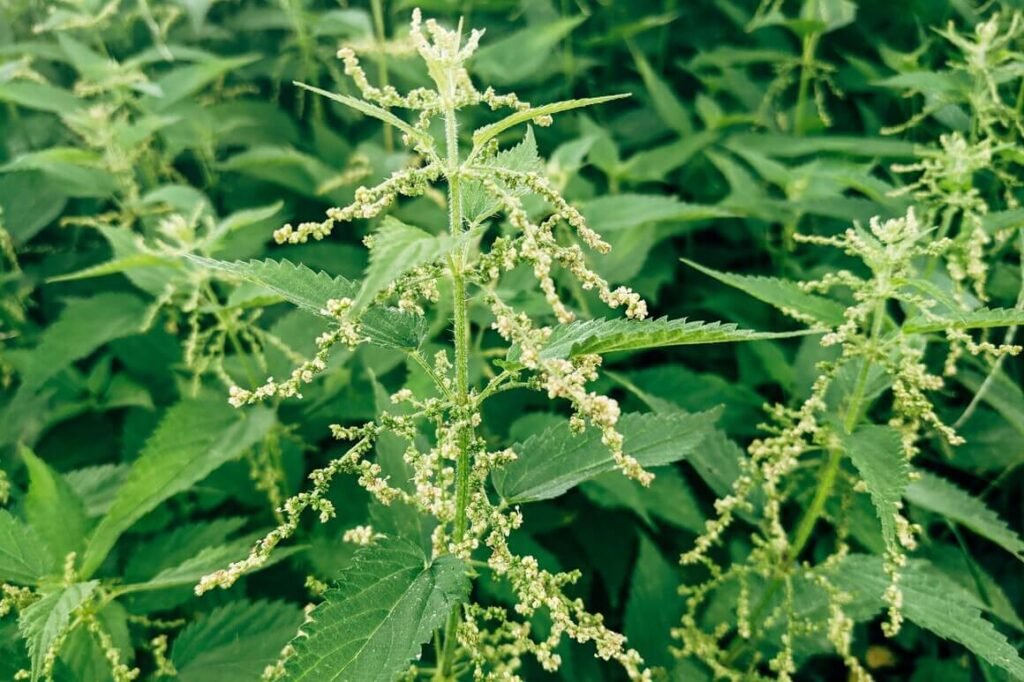
Anti-inflammatory Properties of Nettle Tea
This plant has stinging hair tipped with irritants that cause itchiness and redness upon contact. That effect can give nettle promising anti-inflammatory actions for your sinusitis.
According to the National Library of Medicine, scientific studies have shed light on nettle’s ability to inhibit the production of inflammatory mediators such as cytokines and prostaglandins.
By modulating the production of these mediators, nettle tea helps to reduce inflammation and swelling in the sinus passages.
Nettle Tea as an Antihistamine
Nettle tea alleviates allergy symptoms such as sneezing, itching, and congestion thanks to its histamine-blocking compounds.
Histamine is a chemical your immune system releases that triggers allergy symptoms and nettle tea reduces its production in the body so it acts as an antihistamine.
Antihistamines are used for sinusitis treatment. Keri Marshall ND, medical director for Gaia Herbs in Brevard, N.C. says that ‘Nettle leaf is one of the best-studied botanicals for sinusitis because it works as a natural antihistamine.’
To make nettle tea, infuse 1-2 teaspoons of dried nettle leaves in a cup of hot water, cover it, and let it sleep for 10-15 minutes to extract the beneficial compounds.
Ginger
This is a natural antibiotic with a long history of use in traditional medicine for its various health benefits including sinus infection treatment.
Ginger extract was found to suppress the production of inflammatory cytokines, reducing inflammation in the respiratory tract along with antimicrobial activity including pathologies associated with sinus infection.
To incorporate ginger into your diet, consume it fresh, powdered, or in the form of ginger tea.
Add the ginger to hot water and let it steep for 10 minutes and then sip it.
Garlic
Garlic is one of the best antibiotics nature offers and it can be a valuable addition to your sinus infection arsenal.
It contains allicin, a bioactive compound with potent antibacterial and antiviral properties released when garlic is chopped or crushed.
Garlic, also, has anti-inflammatory effects that ease nasal congestion, facial pressure behind the eyes, and pain associated with sinusitis or sinus infections.
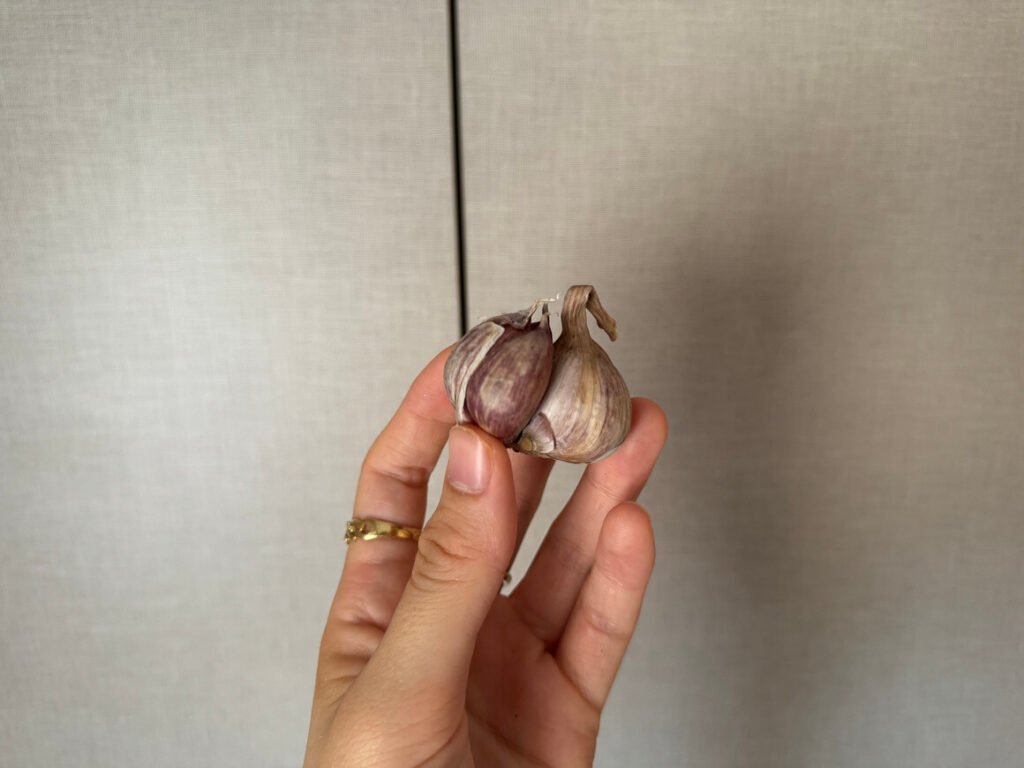
Image: oumaima.haded
Can I Put Garlic in My Nose to Relieve My Sinusitis?
Putting garlic in your nose doesn’t clear your sinus or relieve congestion.
According to Vivek Cherian, MD, an internal medicine physician at Amita Health, an affiliate of Ascension “Garlic is not a decongestant, and by putting a garlic clove up your nose, all you likely will accomplish is irritating the lining of your nose, which can make your symptoms worse.”
How to Use Garlic to Clear My Sinusitis?
You can incorporate raw garlic into your salads, dressing, or spreads. Or use garlic oil by mixing 1 cup of olive oil with 3 tbsp of crushed garlic and placing them for 2 minutes on medium heat. Apply the oil on your forehead, chest, neck, and nose for relief.
You can, also, go for a garlic steam. Crush 3-4 cloves of garlic and add them, create a steam tent and inhale the steam. The aromatic steam will help open your nasal passages and relieve inflammation.
Oregano Oil
Oregano oil is one of the best essential oils for sinus infections. It is considered a potent natural relief for its antimicrobial properties.
It is rich in bioactive compounds such as carvacrol and thymol which help fight off harmful bacteria and microorganisms responsible for sinusitis. Using Oregano oil could be particularly ideal for bacterial sinus infections.
Research from the NTM database has shown that oregano essential oils have biological activity beyond their antimicrobial properties. This includes potent antioxidant, and anti-inflammatory agents that decrease pain and swelling.
Use Oregano oil with caution! It’s potent and highly concentrated.
Grapefruit Seed Extract
Made out of the pulp, seeds, and white membrane of grapefruit, this extract works as a natural antioxidant, antiviral, and antimicrobial agent. It can reduce nasal congestion and help combat the microorganisms responsible for sinus infections.
Grapefruit Seed Extract, also, supports pH balance in the body. It creates an environment where microorganisms find it more difficult to survive.
You can dilute 4 drops of grapefruit Seed Extract into a saline solution and use it to clear the nasal cavities using a neti pot or a nasal spray bottle.
Or you can purchase GSE as a nasal spray for sinusitis relief.
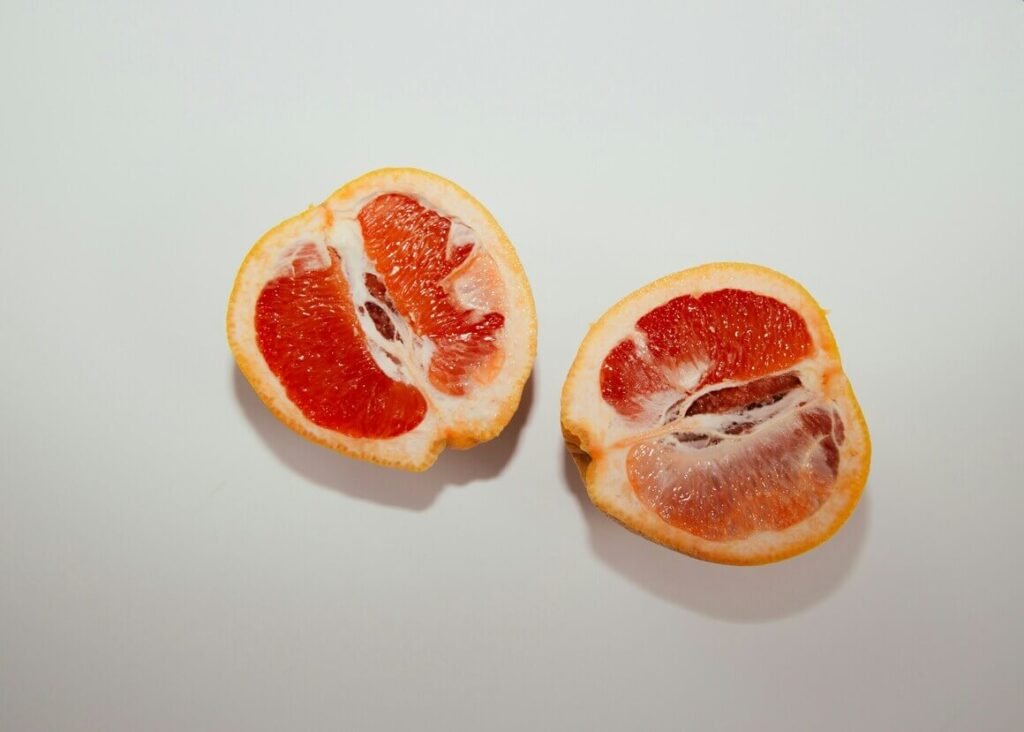
Spices
Spices are used for their medicinal properties and potential benefits in relieving sinus infections. You can use spices like turmeric, cinnamon, and cayenne pepper. Here’s what you should know!
Turmeric
Turmeric is a bright yellow spice derived from the Curcuma Longa plant that nature offers as a safe and sustainable antibiotic.
It contains a bioactive compound called curcumin that possesses anti-inflammatory, antibacterial, and antibiotic qualities that can help alleviate sinusitis symptoms.
A study published in the International Journal of Otolaryngology demonstrated the effectiveness of curcumin in inhibiting the growth of common sinusitis-causing pathogens.
These antimicrobial properties may help reduce the microbial burden in the sinuses and aid in sinus infection treatment.
Steep 1/4 tsp of turmeric powder in boiling water and drink regularly.
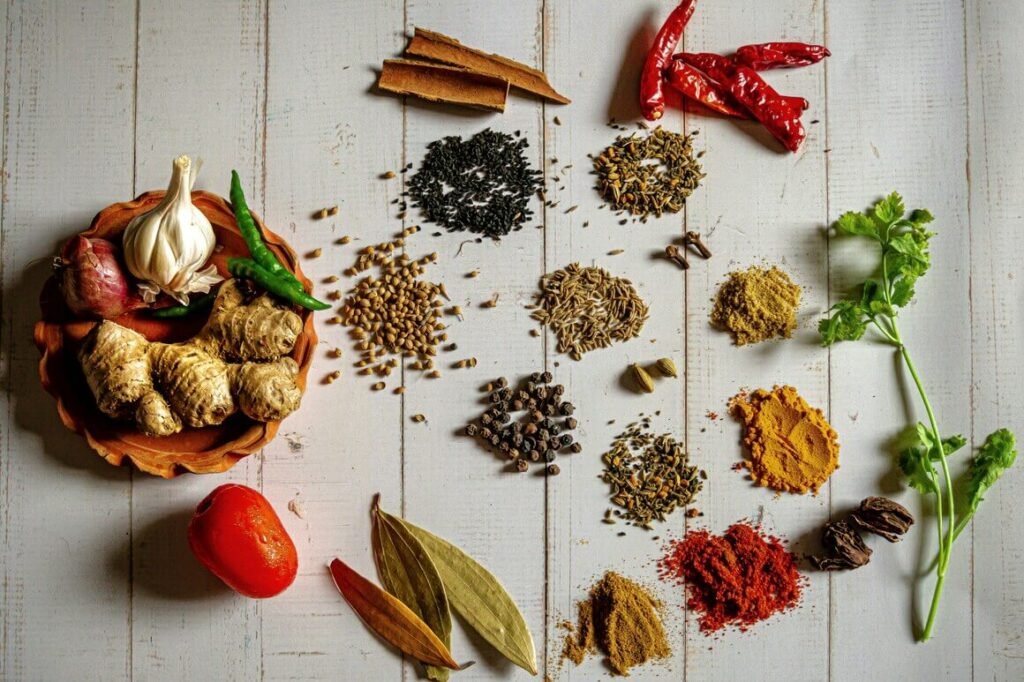
Cinnamon
Research published in the journal BMC Complementary Medicine and Therapies found that cinnamon extract possesses significant antibacterial activity against common sinusitis-causing bacteria.
The study suggested that cinnamon extract could be used as an adjunct therapy to conventional antibiotics for sinusitis treatment.
To make the recipe, mix 1-2 tsp of cinnamon powder with a little water to make a paste. Apply this paste to your nose to promote sinus drainage.
Cayenne Pepper
Cayenne pepper contains capsaicin, a compound known for its decongestant properties.
It may help thin mucus and promote sinus drainage, reducing congestion and pressure.
Incorporating a small amount of cayenne pepper into meals or drinking warm water with a pinch of cayenne can potentially provide congestion relief.
Conclusion
Medications can either alleviate or exacerbate your sinus infection depending on your condition. Always consult a doctor to identify the root causes of your inflammation.
Treating sinus infection depends on understanding how your body responds to your condition.
Adopting a holistic lifestyle has enabled me to embrace healthy practices that alleviate sinus pressure. I began by creating an allergen-free environment and improving my diet with natural ingredients, which significantly improved my overall well-being.
This is how I got rid of my sinus infection without antibiotics. Share your experiences and thoughts in the comments below!

Image: oumaima.haded
Read More
- Relieving Sinus Pressure: My Journey with Chamomile Tea
- How I Used Tea Tree Oil For My Sinus Infection
- How I Treated My Sinusitis with Oregano Oil: Everything You Should Know
- My Healing Journey from Sinusitis | What I did to Transform My Life
- Can Stress Cause a Sinus Infection?
Disclaimer – Knowlege Is Power: This content provides generic information only. It is in no way a substitute for a qualified medical opinion. Always consult a specialist or your own doctor for more information. We do not claim responsibility for this information.

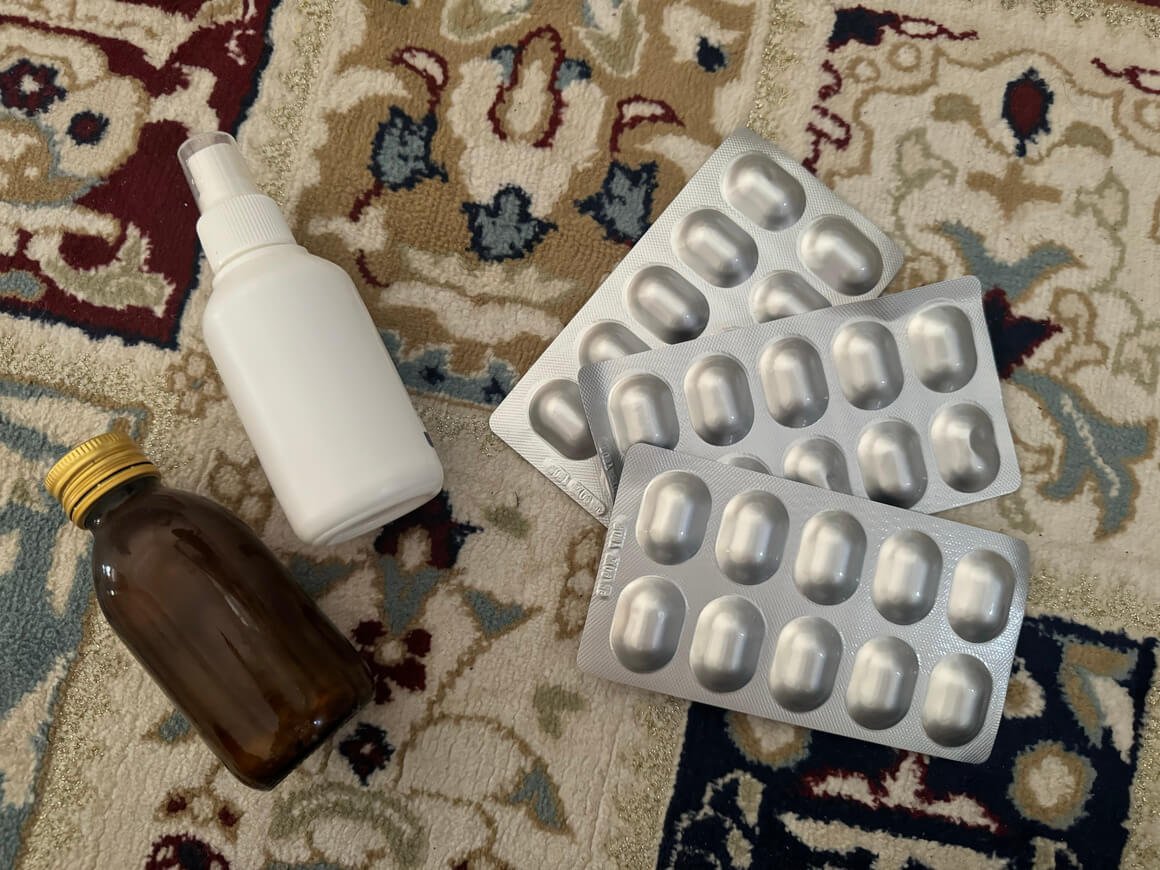
Leave a Reply